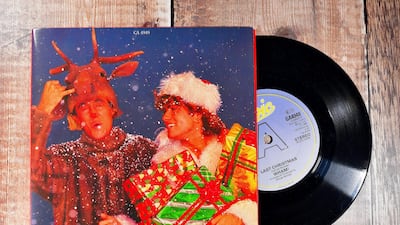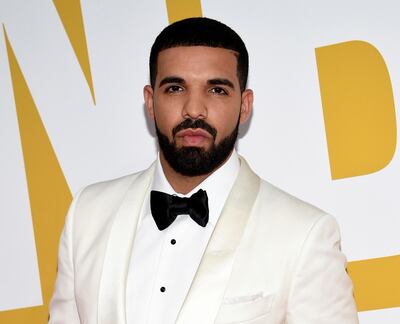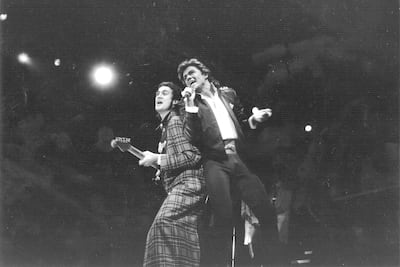When the British pop duo Wham! released the single Last Christmas in December 1984, they probably hoped that – with luck – it might become a minor festive favourite. Thirty-four years on, that song remains such a Yuletide standard that a new global phenomenon has now emerged: Whamageddon.
The Whamageddon challenge is relatively simple: to complete it, you must reach December 25 without hearing Last Christmas. Unsuccessful players announce on social media when they succumb, and an accompanying website adds their location to an international map. At the time of writing, it pinpoints just one Whamageddon player in the Emirates, on the Palm Jumeirah in Dubai.
Viral challenges in 2018
Certain tracks do inspire odd spin-off events. This year has been awash with song-led crazes, in fact, and often more hazardous than Whamageddon. Most dramatic was the viral challenge that sprang from Drake's single, In My Feelings, in July. That craze was actually kick-started by a YouTube comedian, Shiggy, who videoed himself dancing to Drake's song: it then inspired a curiously lemming-like response, as fans were filmed jumping – and sometimes falling – from moving cars while performing that dance. Police in the United States, India and the UAE warned potential participants against it.
Popularity boost
Viral videos can boost a track's popularity – Drake credited Shiggy for that single's subsequent success – and the track Mickey, by Atlanta's Lil Yachty, enjoyed a similar spike this summer. It inspired the zoom challenge: videos in which people were suddenly dragged off-screen, just as Yachty rapped the word "zoom".
That fad also raised safety concerns, as many unsuspecting participants fell awkwardly, and painfully. And similar issues were raised about the Baby Shark challenge, which was similar to the Drake-inspired craze, but this time foolhardy parents jumped from moving cars while dancing to a children's TV song.
Catchy tracks can inspire a sort of mass hysteria. The Baby Shark craze came about due to extreme repetition – kids loved the song, and eventually overexposed adults became obsessed with it, too, and began making risky videos. Unlike TV or movie hits, contagious songs get everywhere – home, car, the store – and eventually, people react in odd ways.
Dancing is the most obvious response, of course, and artists have actively promoted spin-off dance crazes for decades, from Chubby Checker's The Twist (1960) to Psy's Gangnam Style (2012). Although, interestingly, the longest-running recent dance fad, the Floss, came from a videogame, Fortnite. A cultural shift, perhaps.
'Cray', 'izzle' and 'YOLO'
Also heavy with curious song spin-offs is the genre of hip-hop, which regularly launches hot new phrases into the lexicon. Snoop Dogg encouraged us to add "izzle" to random words, initially in the 2002 track Suited N Booted, then the sketch show Doggy Fizzle Televizzle. Kanye West and Jay-Z popularised the word "cray" – meaning crazy – on their album Watch the Throne, in 2011. And Drake's 2011 mixtape YOLO – You Only Live Once – is largely credited with launching that abbreviation across the nations.
Drake seems particularly prone to spawning infectious phenomena. His distinctive dad-dance in the video for Hotline Bling (2016) inspired numerous memes, although these are now an occupational hazard for most major artists: a high-profile track hits a nerve, and the public respond with their comical variations.
The surge of memes
Take Ariana Grande's recent hit about her exes, Thank You, Next, with its refrain: "One taught me love. One taught me patience. One taught me pain." Numerous "love, patience and pain" memes swiftly appeared, featuring trios of Friends characters, soccer matches, potato chip flavours.
Then again, old songs can become meme fodder too. The prime example was rickrolling, in which internet users were lured to an enticing weblink, only to then watch Rick Astley singing his 1987 hit Never Gonna Give You Up. The idea made a splendid comeback this year when HBO's Westworld rickrolled its own audience, teasing the new season trailer, which actually turned out to be the actress Evan Rachel Wood singing Astley's song.
Why Wham?
Why, though, has Last Christmas suddenly conjured a craze? Wham!'s George Michael died on Christmas Day, 2016, and last year his fans campaigned to push the now-poignant song to Christmas chart number one spots. Whamageddon is a quirky, affectionate response.
Will Whamageddon live on for so long? The challenge has certainly captured the imagination, also attracting players as far afield as India, Hong Kong and Kenya, so it may well be back next December. This is the perfect time of year for a snowball effect, after all.
________________
Read more:
Enrique Iglesias: 'The UAE is such a beautiful place'
Abu Dhabi Festival announces line-up of major performances for 2019
________________




